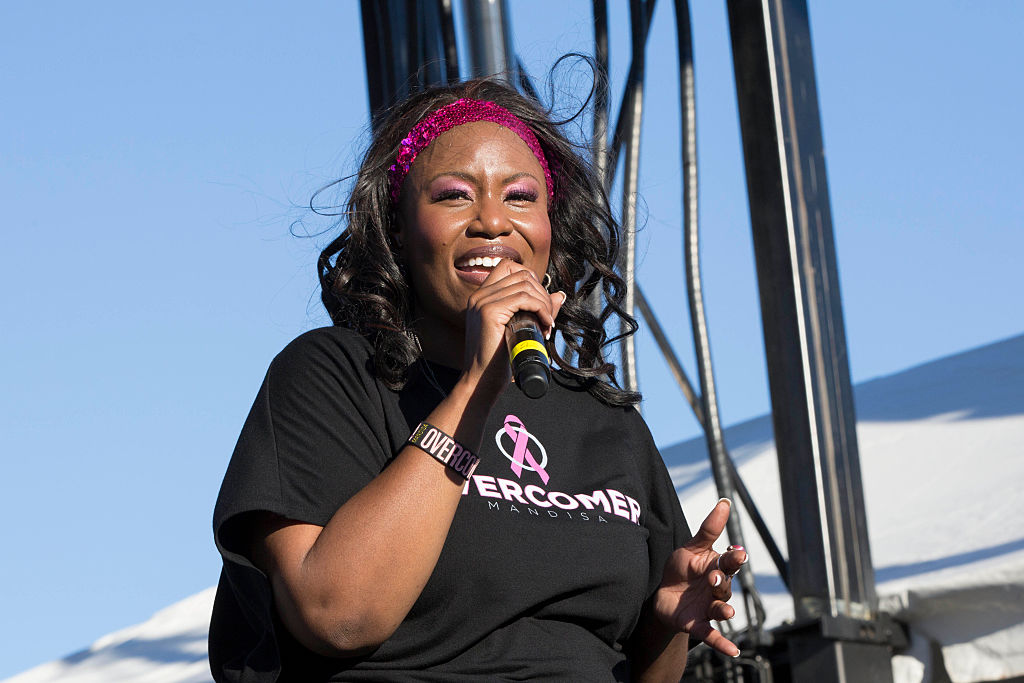BALTIMORE (AP) — It was supposed to be an open-and-shut case: The 25-year-old black man was healthy before his arrest and arrived at the nearby station dying from a broken neck.
But a judge ruled Thursday that prosecutors failed to prove any crime was committed by Officer Caesar Goodson, who drove the van where Freddie Gray suffered his fatal injury during a six-stop, 45-minute odyssey after he tried to outrun a police patrol.
After three trials and no convictions, it’s increasingly clear that the evidence against six Baltimore police officers in charged in Gray’s death is too weak to sustain the hopes of citizens desperate for reform.
Police union president Gene Ryan called on State’s Attorney Marilyn Mosby (pictured, center) on Thursday to reconsider her “malicious prosecution,” since he’s certain the remaining officers also will be acquitted.
Gray’s death became a rallying cry for the Black Lives Matter movement, fueling outrage nationwide over the treatment of black people by the criminal justice system. But it hasn’t fit quite so neatly into the narrative of white authorities imposing unfair justice on minorities.
In this case, not only the victim but the defendant, judge, top prosecutor and mayor are African-American. At the time of Gray’s death, so was the police chief.
Many activists focused their criticism on the system as a whole.
“Today is a reminder that there is a set of laws, policies and police union contracts across the country that will protect any form of police behavior,” Black Lives Matter activist DeRay Mckesson said.
Gray’s death was a career-ender for Baltimore’s police chief, and the new commissioner, Kevin Davis, has been vocal about imposing changes. All patrol officers will soon wear body cameras, and software will ensure no policeman can say he hasn’t read and understood department rules. Police vans will be outfitted with cameras to record prisoners being transported.
Maryland lawmakers also amended the Law Enforcement Officers Bill Of Rights for the first time in decades; among other things, they reduced from 10 to 5 days the period when officers charged with a crime can refuse to participate in an investigation.
Prosecutors had slim evidence that Goodson intended to harm Gray, in part because no witnesses or cameras could show what happened inside the van, and Goodson wouldn’t talk to investigators.
The changes in Annapolis still don’t require officers to give statements, and departments still can’t fire them for refusing. This hardly satisfies people who see unfair policing as one of Baltimore’s biggest problems.
They want tangible and measurable improvements, and the kind of culture change they think will come when police officers are jailed.
It seemed to be a defining moment for the city when Mosby announced the charges last year, sounding righteously outraged as she described how six officers caused the death that triggered riots so destructive that the National Guard was called in to help stop them.
She seemed crestfallen Thursday after Baltimore Circuit Judge Barry Williams acquitted Goodson of murder, manslaughter and all other charges. The same judge acquitted Officer Edward Nero after an earlier non-jury trial, and presided over a hung jury in the mistrial of Officer William Porter.
Goodson was the officer who faced the most serious charges. But after prosecutors and detectives openly traded accusations of misconduct, sabotage and dirty dealings, his trial failed to produce clear evidence of intent to harm, the judge said.
Prosecutors said Goodson was criminally negligent when he failed to buckle the shackled and handcuffed prisoner into a seat belt, leaving him vulnerable to injury inside the van’s metal compartment; and chose not to call for medical help or take Gray to the hospital.
“The state has failed to meet its burden to show that the actions of the defendant rose above mere civil negligence,” the judge said.
Warren Brown, a Baltimore attorney who observed much of the trial, said the state’s case amounted to “this was a tragedy and so therefore someone should be held responsible, but that’s just not the way it works.”
Billy Murphy, the Gray family attorney, held a news conference to address the ruling Thursday evening. He said putting cameras in courtrooms to make trials like this one more transparent should be “at the top of the list” of criminal justice reforms, so the public can make up its own mind about the merits and weaknesses of the case. He added that the family is “frustrated” by the result, but continues to support the efforts of Mosby, whom he called “one of the most courageous prosecutors in the United States.
“They hope for justice,” he said, “whatever that is, and they know justice doesn’t have guilty or not guilty attached to it.”
But Baltimore’s NAACP president, Tessa Hill-Aston, says the problems go much deeper than the state presenting a weak case.
“Rules and the court play it one way, but in the street we see it as criminal,” she said, “and we see that our loved ones are dead,” she said.
The People’s Power Assembly, which has organized demonstrations outside each trial, announced a new campaign Thursday to hold quarterly citizen assemblies where people can discuss their experiences with police, and called for more resources for inner-city communities.
Tawanda Jones, who leads a weekly protest over the death of her own brother during his arrest, tearfully said that “We need to dismantle this corrupt system.”
Angel Selah, wearing a symbolic noose around her neck, demanded that someone be held accountable for Gray’s death. “I feel like it is a modern-day lynching,” she said.
But U.S. Rep. Elijah Cummings, a veteran of the Civil Rights movement who sought to restore order after the riots, said “Baltimore’s future does not rest on the outcomes of the trials surrounding Mr. Freddie Gray’s death … Baltimore’s future rests on every one of us.”
Judge’s ruling is posted here:
Associated Press contributors include Brian Witte in Baltimore and Matthew Barakat in McLean, Virginia.

















